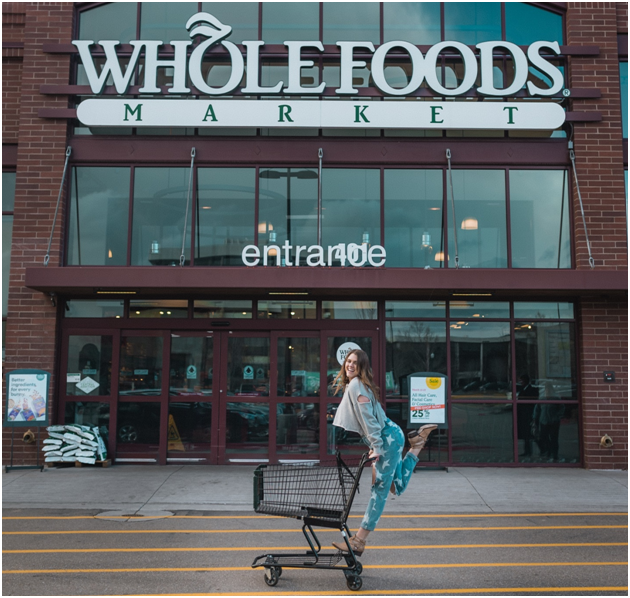Shopping is fun, whether you are looking to update your wardrobe, buying Holiday presents, or stocking up groceries for the week/month. The experience can be made a lot more satisfying and worthwhile with the right strategies. If shopping makes you feel stressed out and anxious, you are obviously doing it wrong. Utilize these pointers to save time and money, as well as avoid regretful decisions on your grocery-shopping trip:
1. Make a List
Make a list the traditional way; grab a pen and piece of paper to jot down everything you need. This way you can eliminate the possibility of forgetting any essential items and avoid purchasing of unnecessary stuff. Check your fridge, pantry, and other storage cabinets to know your exact requirements.
2. Set a Budget
Research proves that people whoshop for grocery with cash are less likely to overspend, as compared to those who rely on credit. Setting a limit to your expenses prevents you from buying useless stuff or splurging on processed foods. It is easy to get mesmerized by shiny packaging when your credit card can afford it.
3. Consider Transportation Costs
So you just heard about a big sale across town, where you get a $10 item for $5. If you only need one sale item and you will spend $10 on gas to get there, that is certainly not economical. If you include transportation costs in your agenda and can still save money, then the deal counts.
4. Dress Casual and Comfortable
If you’re planning to stock up for more than a week, shopping could take a while. You may have to drag the cart over long distances through lengthy aisles at a big store, so better wear your walking shoes. Wear clothes that you can breathe and relax in, so the trip doesn’t get you cranky with sore muscles.
5. Don’t leave home on an empty Stomach
Fuel up with a healthy and filling snack before leaving home. You will need the energy to make the best of this trip after all. If you go hungry, you will get famished half way and end up loading your cart with all the junk food you lay your eyes on.
6. Avoid shopping on a Sunday after noon
Grocery stores are noisy, crowded, and sometimes stinky on a Sunday. Most families go shopping with their kids on a Sunday afternoon or evening. Not to mention, many items on your list are likely to get out of stock before you reach them.
7. Don’t get too Distracted by the Sales
Customers live for red flyers and signs for promotions at grocery centers. However, bear in mind that just because something is on sale, does not mean that it is the best price. Check other brands and variants to acquire the most favorable deal. Also, make sure that the discounted item isn’t defective or expired. Product liability claims and civil lawsuits are a headache you must avert at all costs.
8. Bring your Reading Glasses
If you cannot read tiny labels or package literature without your glasses, you might place yourself at a disadvantage. Bring your spectacles to take note of nutritional information, ingredients, expiration dates, etc.
9. Check the Back of the Shelf
When stocking up perishable groceries, look for fresher items at the back of shelf. The store staff is normally instructed to place old dated stuff at the front so it sells first.
10. Take your Time
Grocery shopping is an activity that should not be rushed. Reserve it for a day when you don’t have other commitments to fulfill. Enjoy every moment of it and keep other plans for another day.
11. Pick dairy products and meat last
If grocery shopping is going to take a few hours, start with the dry and non-refrigerated stuff. Fresh meat and dairy products should be picked last to preserve freshness; they might get too warm or melt by the end of the trip.
12. Don’t Self-Checkout with a full cart
Self-checkout it only a good option if you carry no more than half a dozen items, and they do not include stuff that needs you to show your ID.
13. Bring your own Reusable bags
Disposable plastic bags are a nuisance for the environment, which is why the majority of grocery stores have banned them. Paper bags cannot hold much weight and cloth bags need to be purchased. Bring your own reusable bags to sidestep the inconvenience.
14. Buy in bulk if practical
Buying items in bulk is often a good investment as the individual price is reduced. However, only buy in bulk if it is practical for your situation. For example, a family of five can benefit from buying a package deal of 100 toilet rolls. On the contrary, buying two dozen cartons of milk is not feasible for a bachelor living alone, unless he is planning to make lattes for the whole community.
15. Opt for Local Products
Always choose locally manufactured items over imported processed goods. Fresh local produce is healthier, ecofriendly, and usually cheaper. In addition, supporting native brands is good for the country’s economy.
Author Bio
John Adams is a lifestyle blogger who creates content focused on healthcare and personal well-being.He encourages readers to improve their quality of life by incorporating positive thoughts and actions.Blogging about personal opinions and life experiences makes him happy, and he is always open to constructive criticism.










